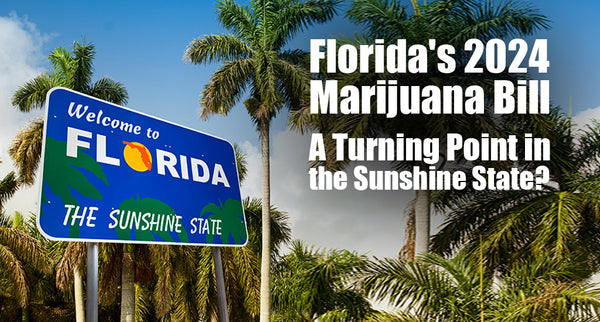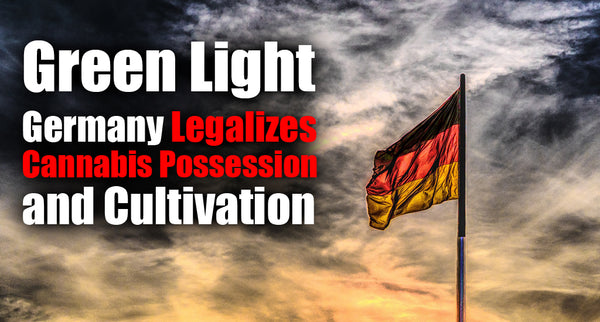
Breaking Ground: Fresh Perspectives from Veterans on Cannabis and Psychedelics
The evolving landscape of public opinion on marijuana and psychedelic substances, especially regarding their therapeutic use, has been a subject of increasing interest and research. A recent study, conducted in partnership between CHRR at The Ohio State University and the Moritz College of Law’s Drug Enforcement and Policy Center, aimed to delve deeper into these attitudes, particularly within the context of veterans and military personnel.
The Veteran Perspective and Previous Research
A significant focus of the study was the veteran community, a group often grappling with various mental and physical health challenges. Previous research has shown a nuanced but generally supportive attitude among veterans towards marijuana and psychedelics as potential medical treatments. These findings underscore the importance of considering alternative treatment options, given the specific health challenges faced by veterans.
Research Methodology and Questions
The study revolved around three primary research questions: the differential agreement to marijuana and psychedelics as treatment options across veteran status, and the comparison of attitudes towards these two types of substances. A comprehensive approach, including binary logistic regression and multiple regression analysis, was employed to analyze responses from a diverse sample of 1168 individuals.
Sample Demographics
Participants were drawn from the American Population Panel, encompassing a broad demographic spectrum including active and veteran military personnel, their family members, and non-military individuals. This diversity in the sample provided a rich basis for understanding varied perspectives on the subject.
Survey Findings: Marijuana as a Treatment Option
The survey results revealed interesting patterns in attitudes towards marijuana for medical purposes:
-
Effectiveness as a Medical Treatment: A majority across all groups agreed that marijuana could be an effective treatment, with the highest agreement among family members of veterans.
-
Recommendation by Doctors Without FDA Approva: A significant portion of respondents, especially family members of veterans, agreed that doctors should be able to recommend marijuana even without FDA approval.
-
Recommendation Post FDA Approval: More conservative views emerged when considering FDA approval as a prerequisite, with a lower agreement rate, particularly among veterans.
-
Special Consideration for Veterans: A strong consensus was observed regarding the allowance for Veterans Administration doctors to recommend marijuana to veterans, reflecting the recognition of the unique health challenges faced by this group.
Survey Findings: Psychedelics as a Treatment Option
The responses to psychedelics as a treatment option mirrored those for marijuana, albeit with generally lower agreement rates:
-
Effectiveness as a Medical Treatment: The overall agreement on the effectiveness of psychedelics for medical conditions was slightly lower than that for marijuana.
-
Doctor’s Recommendation Without FDA Approval: The pattern of agreement was similar to that of marijuana, with a notable difference in the significant gap between veterans and family members of veterans.
-
Post FDA Approval: Again, more conservative views were noted, with marginal differences between veterans and other groups.
-
Special Consideration for Veterans: There was a significant agreement on allowing Veterans Administration doctors to recommend psychedelics to veterans, albeit less than the agreement for marijuana.
Comparison Across Drug Types and Veteran Status
The study conducted by CHRR at The Ohio State University and the Moritz College of Law’s Drug Enforcement and Policy Center revealed a notable trend in the attitudes towards marijuana and psychedelics as medical treatments. A majority of respondents expressed support for both substances as treatment options. However, this support was more pronounced for marijuana compared to psychedelics. This distinction in preference highlights the varying degrees of acceptance and possibly the perceived efficacy or familiarity with these substances among the general public.
Notably, the study uncovered a divergence in viewpoints between different demographic groups. Active and veteran military personnel were found to be somewhat less supportive of both marijuana and psychedelics for medical use compared to their family members and non-military individuals. This lesser degree of support could be attributed to a range of factors, including the unique experiences, responsibilities, and cultural perspectives within the military community. These findings suggest a nuanced landscape of opinion on these treatment options, reflecting the complex interplay of personal, cultural, and experiential influences on attitudes towards historically illicit drugs in a medical context.
Conclusion
The study provides insightful data on the shifting perceptions of marijuana and psychedelics as potential medical treatments among various demographics, particularly in the veteran community. While there is a growing acceptance and openness to these substances, the level of support varies, and historical stigma associated with their use remains a factor in shaping these attitudes. It's important to note that these findings are not universally generalizable and should be interpreted with caution due to potential biases in the sample.
Future research, addressing these limitations and exploring the legal and societal implications of these changing attitudes, is essential for a more comprehensive understanding of this evolving issue.
We will keep you posted.
Leave a comment
Comments will be approved before showing up.



